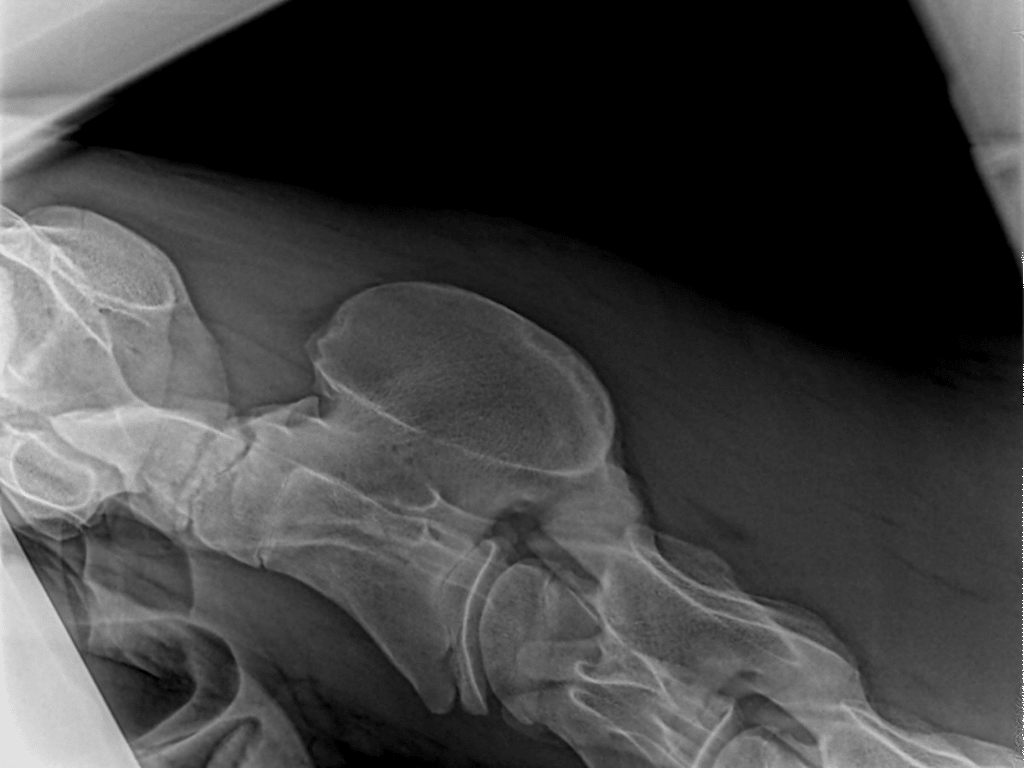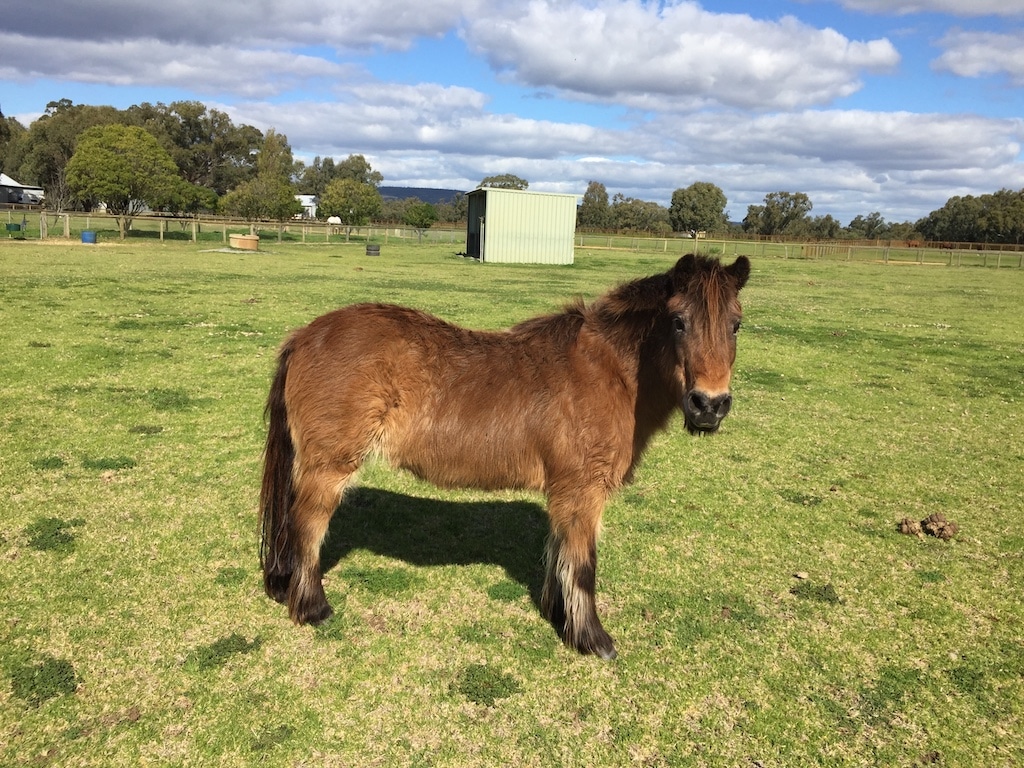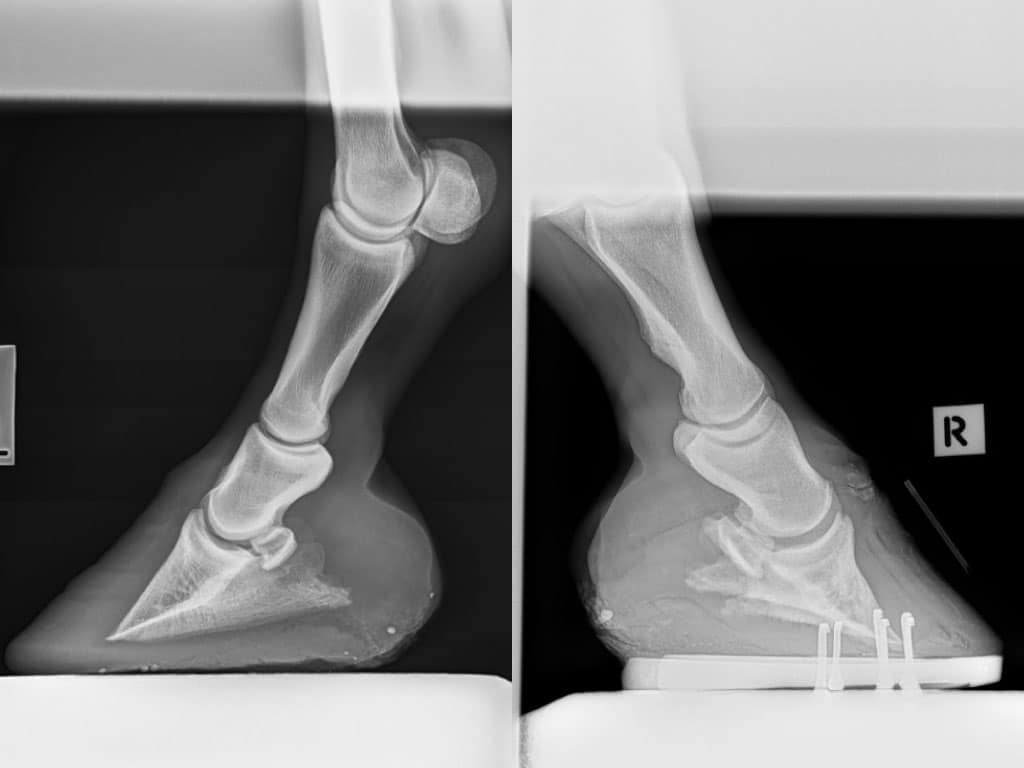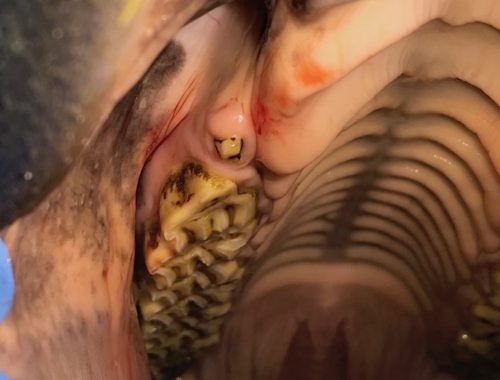Dr Annemarie Cullimore, a Registered Specialist in Equine Medicine, leads our internal medicine service at Ascot Equine Veterinarians. Whether directly managing cases or consulting with our dedicated veterinary team, Dr Cullimore ensures comprehensive, 24-hour care for the diagnosis and treatment of a wide range of equine diseases and disorders. Our expertise encompasses respiratory, cardiac, gastrointestinal, liver, neurologic, muscular, ophthalmologic, dermatologic, renal (kidney), hematologic (blood), and endocrine/hormonal disorders. We are committed to providing advanced medical care, tailored to meet the specific needs of each horse under our care.

Internal Medicine
Intensive Care Facilities
Intensive Care Facilities
At Ascot Equine Veterinarians, we provide comprehensive 24-hour intensive care for adult horses and foals facing critical conditions, such as colic or diarrhoea, which often require close monitoring and continuous supervision to ensure a full and speedy recovery. Other conditions needing intensive care include severe haemorrhagic diseases, neurological disorders, and certain respiratory illnesses.
Our stalls are equipped to deliver of continuous intravenous fluid therapy (drips), using advanced suspension systems for large horses and constant rate infusion (CRI) pumps for smaller horses and ponies. These CRI pumps are also used to administer lignocaine for pain relief and to promote gut motility in horses recovery from colic or post-colic surgery. We provide on-site stall side monitoring of hydration levels, blood parameters, lactate concentrations, and electrolytes to guide precise treatment decisions.
Our facility is equipped with the capability to perform out-of-hours cell counts and cytolological evaluations on fluid samples, such as joint fluid aspirates and peritoneal fluid samples. This is critical for determining joint infections or whether a horse may require colic surgery.
Two of our large stalls are air-conditioned, providing an ideal environment for unwell horses with high temperatures, particularly during Perth’s hot summers. For horses with contagious diseases, such as colitis, we also have a dedicated isolation unit separate from the main hospital to ensure the safety and well-being of all patients.
Our exceptional nursing team provides round-the-clock care, ensuring that all horses and foals receive the highest standard of attention throughout their recovery.

Respiratory Diseases
Respiratory Diseases
Respiratory issues in horses can range from mild performance reduction to life-threatening illnesses. Depending on the severity and nature of the condition, horses may be treated as day patients or admitted to our hospital for a more extensive work-up and treatment plan.
At Ascot Equine Veterinarians, we utilise state-of-the-art tools, including videoendoscopy, which allows for detailed examination of the nasal passages, pharynx, larynx, guttural pouches, trachea, and bronchi while the horse is at rest. Resting airway endoscopy is crucial for diagnosing conditions such as recurrent laryngeal neuropathy (roarers), epiglottic entrapment, ethmoid haematomas, and guttural pouch infections. It also facilitates respiratory fluid sampling via tracheal washes or broncho alveolar lavage (lung wash) to identify infectious, inflammatory, blood-related, or neoplastic conditions.
For horses requiring evaluation of upper respiratory tract disorders while exercising, we offer overground dynamic endoscopy, providing real-time insight into conditions that only manifest during exercise.
Ultrasound of the thoracic cavity, including the lungs, is important in the assessment of horses with pneumonia, lung masses or pleurisy. It allows us to assess the surface of the lungs and detect early fluid accumulation of fluid in the chest cavity. We routinely perform laryngeal ultrasound in horses with a history of respiratory noise during exercise.
Radiography of the head is another key diagnostic service for horses with suspected sinus disease, allowing us to assess sinus cavities and detect infections or other abnormalities.
Our comprehensive approach ensures we diagnose and treat respiratory diseases effectively, ensuring the best outcomes for equine athletes and companions alike.

Cardiac Diseases
Cardiac Diseases
Heart abnormalities in horses are relatively common, ranging from minor concerns to potentially life-threatening conditions. Cardiac disease may present as heart murmurs, dysrhythmias (irregular heartbeats), exercise intolerance, or poor performance.
Heart murmurs are frequently detected during routine exams, such as pre-purchase assessments, often raising concerns about the horse’s long-term athletic potential. To accurately diagnose and assess the significance of murmurs, we utilise advanced diagnostic techniques. Two-dimensional echocardiography, combined with colour-flow Doppler, and pulse/continuous wave imaging, enables us to evaluate murmurs related to valvular regurgitation or congenital heart abnormalities. This also helps assess the heart’s size, structure, and function.
For the detection and interpretation of cardiac rhythm abnormalities (dysrhythmias), electrocardiography (ECG) remains the gold standard. A detailed cardiac evaluation may include careful auscultation, echocardiography, resting ECG and cardiac troponin measurement – an important biomarker indicating damage to cardiac muscle.
These diagnostic tests can be conducted at the hospital or, in some cases, in the field if suitable conditions are available.

Gastrointestinal Diseases
Gastrointestinal Diseases
Gastrointestinal disorders are common in horses and may present with a variety of signs, including colic, diarrhoea, inappetence, weight loss, or poor performance. Depending on the nature and severity of the issue, horses can either be treated as day patients or may require hospital admission for more comprehensive diagnostic work-ups and treatments.
To investigate gastrointestinal conditions, a variety of diagnostic tools may be employed, including thorough physical and dental examinations, blood tests, rectal palpation, faecal analysis, video endoscopy, abdominal ultrasound, ventral abdominal radiography, and dynamic absorption testing.
Abdominal ultrasound is routinely used to assess colic cases, while also being a valuable tool for investigating weight loss and identifying tumours, cysts, or abscesses. Ultrasound-guided biopsies allow safe and precise sampling of internal organs such as the liver and kidneys.
Video endoscopy offers detailed visualisation of many parts of the gastrointestinal tract, including the oesophagus, stomach, duodenum, rectum, and small colon. Gastrodudenoscopy is the gold standard for diagnosing gastric ulcers, and gastric pH testing may be conducted to evaluate the effectiveness of ongoing treatment.
Ventral abdominal radiography of the ventral abdomen is a critical tool for detecting and quantifying sand accumulation – a common cause of colic in Western Australia. Sequential radiographs can track the response to treatment in such cases.
Where necessary, our medical team collaborates closely with our surgeons to perform advanced procedures such as laparoscopy (keyhole surgery of the abdomen) to visualise the abdominal cavity. In some cases, a full surgical exploration may be required.
Emergency services are available 24/7 for urgent colic or colitis investigations and treatment.

Neurological Disorders
Neurological Disorders
Neurological diseases in horses can be subtle and complex, often requiring skilled examination and diagnostics for accurate diagnosis and management. Our experienced clinicians perform thorough and careful neurological assessments to identify the nature and location of any disorders. Additional diagnostics such as radiography and cerebrospinal fluid (CSF) analysis are frequently utilised to further evaluate these conditions.
Radiography of the spinal column helps detect areas of bone damage or spinal cord impingement that could be contributing to the neurological issue. In more advanced cases, cervical myelography may also be conducted to provide a detailed image of the spinal cord.
CSF collection and on-site analysis allow for timely evaluation of neurological conditions, offering crucial insights into infections, inflammation, or other abnormalities affecting the central nervous system.
Muscular Disorders
Muscular disorders are a common cause of exercise intolerance and poor performance in horses. Diagnosing these conditions requires a multi-faceted approach, which may include blood testing, exercise testing, and muscle biopsy. When needed, muscle biopsy samples are submitted to a specialised neuromuscular laboratory in the U.S., where histopathological assessments help diagnose conditions such as recurrent equine rhabdomyolysis (tying-up) and polysaccharide storage myopathy (PSSM).
By identifying the specific disorder and its severity, we can tailor a treatment plan to help restore muscle function and optimise your horse’s performance.
Ophthalmology
Ophthalmology
Eye injuries and diseases are prevalent in horses, and if not properly managed, they can lead to permanent damage or even loss of the eye. At Ascot Equine Veterinarians, we offer a comprehensive ophthalmology service, providing both medical and surgical treatment for a wide range of ocular conditions. Our in-house expertise is complemented by consultations with specialist veterinary ophthalmologists, ensuring that every case receives the highest level of care.
Managing complex eye conditions, such as complicated corneal ulceration, often necessitates hospitalisation for intensive treatment to achieve the best outcomes. Our dedicated team of equine clinicians, nurses, and students is available around the clock, providing frequent (often hourly) medication of the eye through subpalpebral lavage systems when needed.
We collaborate closely with Perth Animal Eye Hospital, and Dr Jonathan Wood is available for consultation on the first Wednesday of each month, enhancing our ability to address intricate ophthalmic cases effectively.

Dermatology
Dermatology
Skin diseases are prevalent in horses and can pose significant diagnostic and management challenges. At Ascot Equine Veterinarians, we are dedicated to investigating and treating a comprehensive range of dermatological conditions, including pruritis (itching), urticaria (allergic skin reactions), nodular diseases, scaling and crusting, as well as pigmentary disorders (changes in skin or hair colour).
Our diagnostic approach may include routine diagnostic tests such as skin scrapings and biopsies to pinpoint underlying issues. We also collaborate with specialist dermatologists to perform intradermal skin testing for accurate allergy assessments.
Common skin tumours in horses, such as sarcoids and squamous cell carcinomas are also treated with various effective options. Depending on the specific case, treatment modalities may include intralesional chemotherapy, electrochemotherapy, and cryosurgery, allowing for tailored management plans that meet the individual needs of each horse.
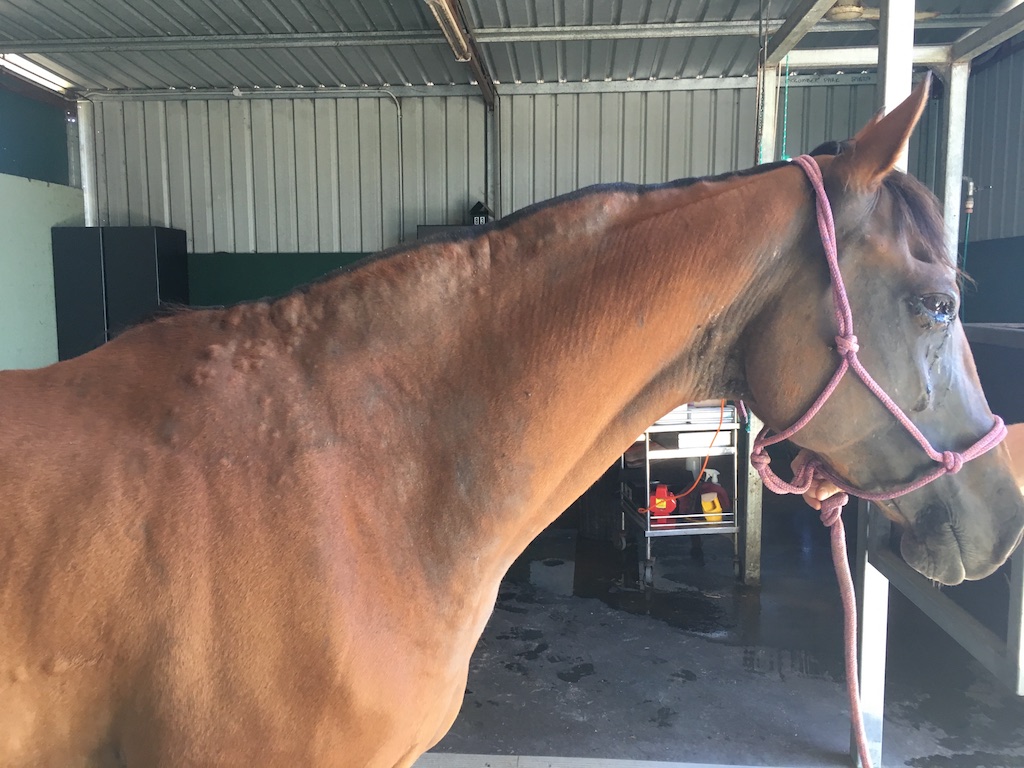
Endocrine Disease
Endocrine Disease
The diagnosis and treatment of endocrine and metabolic diseases in horses have become increasingly routine over the past decade, thanks to extensive research on two prevalent conditions: Pars Pituitary Intermedia Dysfunction (PPID), commonly known as Equine Cushing’s Disease, and Equine Metabolic Syndrome (EMS).
Pars pituitary intermedia dysfunction (PPID) is a common endocrine disorder affecting aged horses. It arises from the abnormal function of the pituitary gland, a small hormone-producing organ, located at the base of the brain. Over time, the middle lobe of the gland enlarges, leading to excessive hormone production. Horses with PPID may exhibit a range of clinical signs, such as delayed shedding of the coat or poor coat quality, laminitis, increased urination and drinking, muscle wasting, weight loss, lethargy, increased sweating, heightened appetite, and/or recurrent infections. Diagnosing PPID is straightforward and involves a simple blood test.
Equine metabolic syndrome (EMS) is characterised by three primary features: obesity or regional adiposity (notably fat accumulation in areas such as the neck), insulin resistance (IR), and laminitis. Certain breeds or individual horses, often referred to as ‘easy keepers’, are predisposed to EMS. These horses efficiently utilise calories and typically require a lower plane of nutrition to maintain a healthy body weight, marking EMS a metabolic disorder. A convenient stall-side test for EMS is now available.
Unfortunately, many horses and ponies with PPID and EMS present with clinical signs of laminitis. At Ascot Equine Veterinarians, we prioritise a collaborative approach, working closely with you and your farrier to diagnosis and effectively manage both laminitis and underlying endocrine or metabolic conditions.
Geriatric Equine medicine
Geriatric Equine Medicine
Horse care in Australia is evolving, leading to an increasing number of horses living into their late twenties and even thirties. Our geriatric horses (aged over 20 years) require extra attention and may face various specific health issues as they age.
Common signs of disease in older horses include:
- Weight loss
- Stiff or reduced mobility
- Laminitis
- Changes in coat quality and delayed shedding
- Slow eating or dropping food
- Increased water consumption and urination
- Diarrhoea
If you have any concerns about your older horse’s health, Ascot Equine Veterinarians are here to assist. We recommend routine veterinary examinations to develop a personalised preventative health care plan tailored to your horse’s needs. These plans may include guidance on nutrition, appropriate vaccination protocols, deworming, dentistry, and hoof care.
For older horses, we recommend routine blood work at least every two years, to facilitate early identification of potential health issues. Early recognition leads to better outcomes for both you and your horse in the long run.





